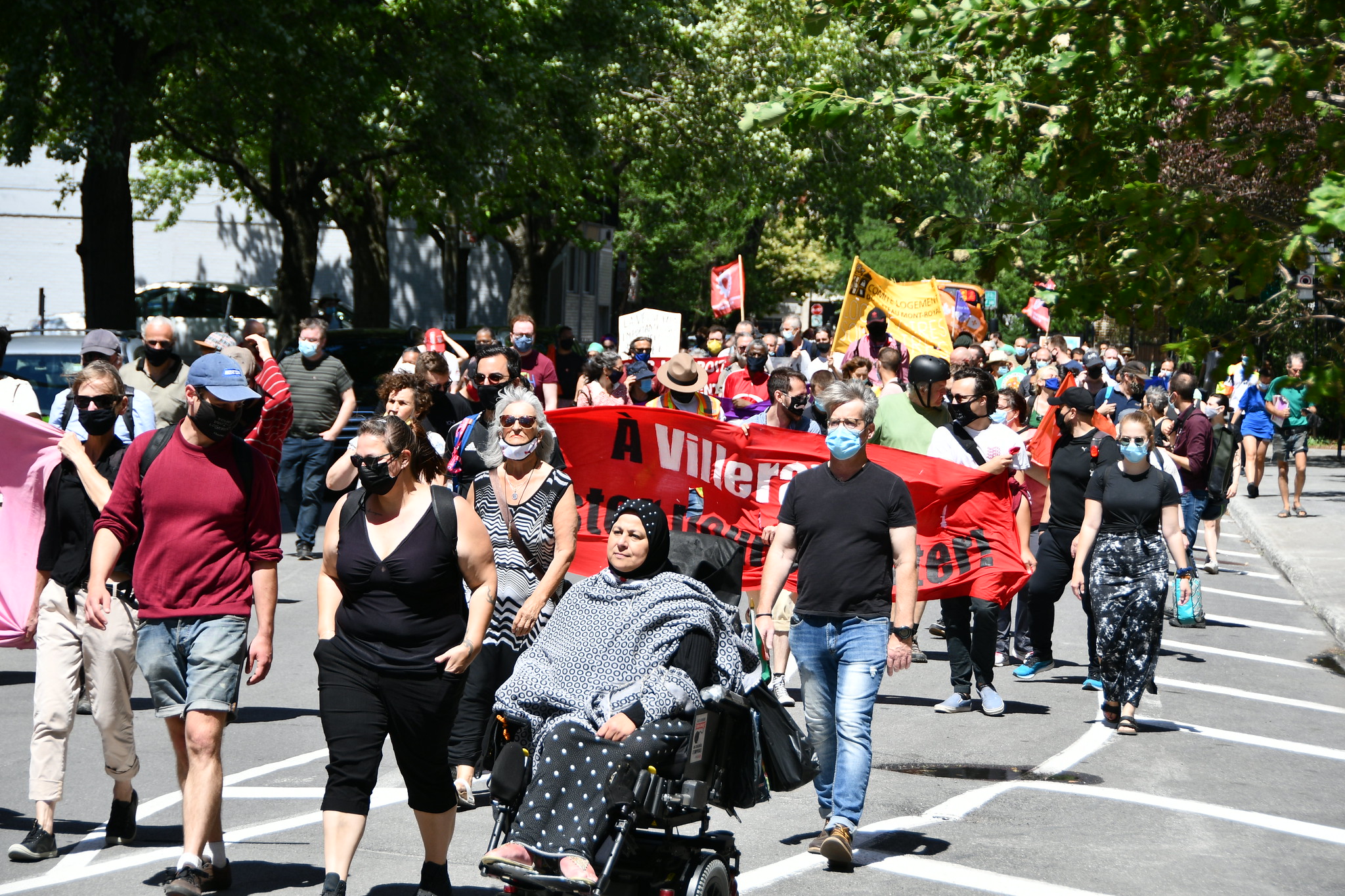It has been two weeks since the federal election. We don’t really want to talk to you about the election results today*, but rather look back on what the election period allowed us to (re)discover about advancing the housing cause: the importance of acting together.
The Vote Housing campaign was a good example of rallying for the cause. Organized by the Canadian Alliance to End Homelessness, the Co-operative Housing Federation of Canada, the Canadian Lived Experience Leadership Network and the Canadian Housing and Renewal Association, it was publicly supported by several organizations that acted as facilitators or supporters (from FRAPRU to Habitat for Humanity Canada, Indigenous groups, mental health organizations and women’s collectives, among others) — not to mention the volunteers and the more than 20,000 individual supporters!
Tim Richter of the Canadian Alliance to End Homelessness, speaking on behalf of Vote Housing, told us, “I think there was just this realization in our sector that policy created mass homelessness in our country and the housing need that we see. And so, in order for us to change that policy, we, as a sector, have to engage in the political process. That’s the genesis of the Vote Housing campaign.
“This is the first election that I can recall where housing was a top issue for so many people. It’s fascinating to me that it was a top issue in the polls and all parties were talking about it.” Housing is a priority because it really affects a lot of people, he says.
However, not everyone is comfortable getting involved in politics. Tim admits it can be “difficult for our sector.”
We acknowledge these important efforts and would like to emphasize that every small step has an impact. Congratulations to all.
***
It’s hard not to connect our discussion with Tim Richter about the importance of engaging to address the policies that drive homelessness and housing needs to the conversation we had a few days ago with Université du Québec à Montréal’s Michel Parazelli (you can read the article here).
Parazelli is the editor of a book on the coexistence of the housed and unhoused in an urban setting. According to the social work professor, repression of people experiencing homeless increased as cities began to compete for investment. And that emerged from political decisions which kowtowed to certain economic players without regard for other people in the urban landscape.
The professor calls for more inclusion of marginalized people in decisions that affect them. He also says that it is through the formation of collectives that it will be possible to fight against the individualistic political forces that promote privatization.
***
What will happen now with Vote Housing?
The coalition is closely watching any new actions put forward by the new government and is trying to ensure that the housing campaign’s priorities are front and centre, Tim told us.
Beyond that, however, the rest is “to be determined, he says. I think I have a feeling that we want to stick together. But we need to figure out what ongoing collaboration will look like. Our organizations and the sector have worked fairly well together, collaboratively, in the past. And I have no reason to think that Vote Housing won’t be around in some form for the foreseeable future.”
We look forward to seeing what happens next!
***
*It is worth noting, however, that, according to Richter, “The election outcome is good for the housing sector and for the work of ending homelessness, because now you have a minority government in a Parliament that is a majority pro-housing. If you look at the platforms of all the parties, all of them wanted to take action on homelessness and on affordable housing in different ways.”
This editorial appears in the InfoCentre newsletter. To subscribe to our monthly newsletter, click here.



